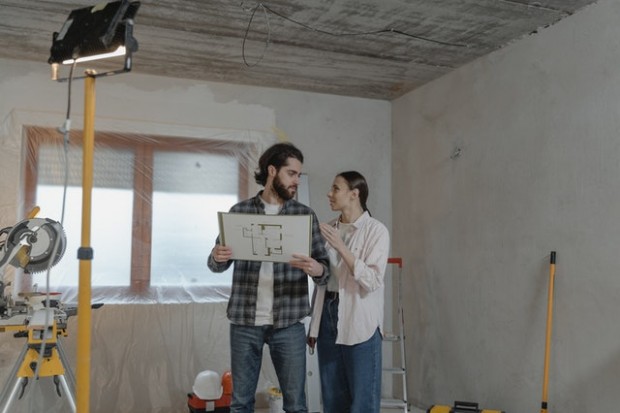Home Renovations: A Simple Process to Follow for Modifying Your Home
- (Photo : Home Renovations: A Simple Process to Follow for Modifying Your Home)
Everyone's home is a castle. We spend a large part of our time in our homes, and accordingly, we want to make our spaces as efficient as possible.
When it comes to space, this is something that is largely treated subjectively. Some people like a minimalist feel. Others like many rooms (to hold more stuff). Whether or not you're into a minimalist lifestyle matters little. The fact is, we all need space for the things that bring us joy in life.
Often when you buy a home, you might have a vision for making this home bigger, or for modifying it in such a way to suit your lifestyle. This typically involves adding rooms or modifying existing areas.
The following is a simple but effective process for modifying your home for you to consider.
How to Start
The first thing you'll want to do is to get some paper and make a sketch. It doesn't matter if you're an artist or not. You're not going to be designing a lavish architectural wonder.
Simply looking at where you want to modify or utilize space in the home and drawing out your plan will suffice.
Take some measurements and write down where you'd like to add or decrease space. Make a few sketches of your modification, preferably of grid paper, and refine your rough drafts after a few attempts.
Modifications to Consider
Depending on if you're wanting to expand, or just modify your existing structure to get more space, several areas of your home should be considered. This can be done in several ways:
-
Removing Walls
-
Adding Windows
-
Adding Doors
-
Expanding for a Porch
-
Expanding for a Garage or Carport
-
Enclosing Areas
-
Building a Second Story
Removing walls adds larger rooms. Though you won't have the separation of a room, one large room might be more to your liking. Removing walls, however, isn't as simple as it sounds. You have to take into consideration the structural support system needed as you expand as well.
And unless you understand the complexity of construction methods, this is why you'll need to seek out the help of a professional
Seek a Professional
After you've cleaned up your sketch and have something to work with, you should have a good idea of where you'd like to build or modify. After that, it's time to seek out professional assistance.
A licensed contractor will know best how to take your sketch and make it into a real construction blueprint.
Contractors will also know how to estimate the cost for your project and have knowledge of any permits required along with the building codes you must abide by while constructing your new addition, or adding space to other areas of the home.
Check your local resources, or ask your neighbors if they know of any good, dependable contractors in your area. This will ensure that you hire a knowledgeable contractor, and get the most value for your money.
Now, if you're an avid DIYer and love doing home improvement projects, then it may be in your best interest to go ahead and get exam prep materials so you can study to become a contractor yourself. This will allow you to not only do your own major home renovations but will also allow you to do work for other people, legally, and get paid for it! It's not a decision you have to make today, but it's definitely something to think about for future home projects.
Get On a Budget
After you've consulted with a contractor, you'll be better able to form a budget to help pay for materials and the cost of labor needed to complete your project.
Keep in mind that a contractor will generally require an upfront deposit in order to begin work. This is usually anywhere from 10 to 20 percent of the entire cost of the job, but this percentage is regulated by the state in which you reside.
After your initial payment, you may set up a payment plan with your contractor to ensure the completion of the job over a specified timetable.
Go through your finances and adjust where you can to facilitate your building plans. Chances are, you'll already have some money to invest upfront in order to get the ball rolling.
But, getting the entire job completed might take some time. If so, see where you can cut costs in order to advance and finance the project towards an earlier deadline.

















